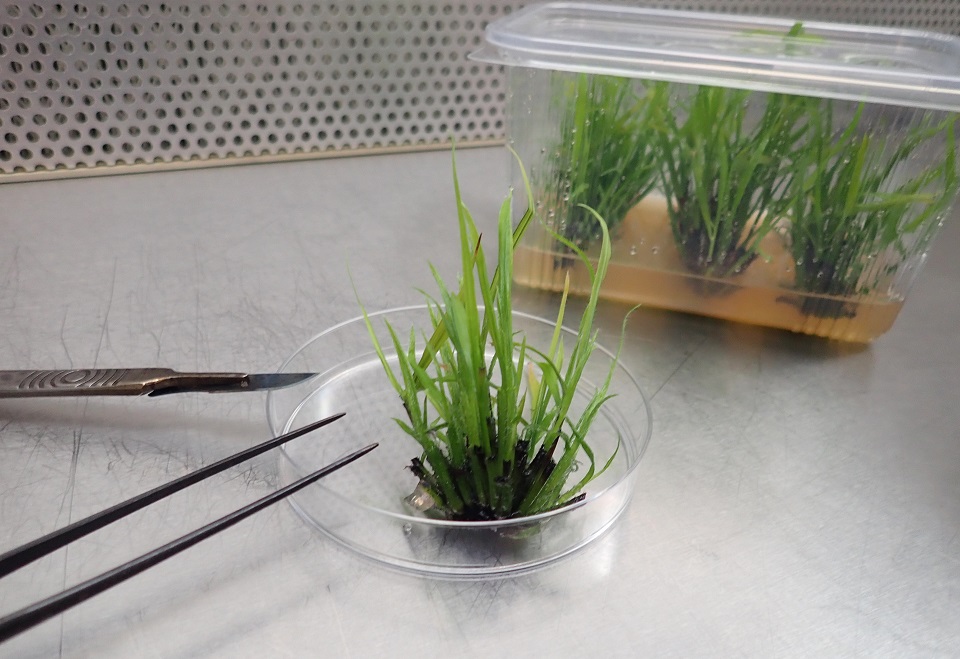Miscanthus x giganteus is a perennial rhizomatous grass, native to Asia and cultivated for its biomass. The plant can be used for heat generation, mulching or the manufacture of biomaterials. It can be planted on both good soil and marginal land. The crop is inseminated for a minimum of 15 years. The right variety must now be chosen...
The CRA-W is supporting several Walloon stakeholders who believe in and are developing this sector.
Rhizomes of various origins were collected with the help of farmers. The plants were then cleaned up by removing the meristems and cultivated in vitro. This enables a better comparison of varieties based on the observation of healthy plants.
Using in vitro cultivation, a single Miscanthus x giganteus plant can be multiplied exponentially in the laboratory, even in the winter season. The CRA-W is studying different in vitro growth conditions in order to optimise the cultivation of vitroplants while remaining genetically consistent with the original individual. In this way, the varieties are ready to be planted in May. Farmers can then compare the varieties harvested and select those suited to their purpose.
Various field trials are being performed, predominantly with the help of a farmer from Walloon Brabant. The various origins are thus compared under field conditions. In vitro plantations have a more uniform number of plants per hectare. In vitro plants are also highly prized for the purpose of compensatory planting, since their vitality enables them to compensate for rhizomes that would not have generated plants when they were planted.
Trials are also being conducted at the former Martinet mining site in the Charleroi region. This area forms an ideal experimental location for the simultaneous assessment of miscanthus farming on this type of soil, the behaviour of different varieties, the planting of vitroplants as opposed to rhizomes on difficult soils, and also the development of an ecological network using plants that can colonise this environment and make it attractive.




